Meat Loaf: Larger-than-life actor and singer of ‘Bat Out of Hell’
The king of rococo rock, Meat Loaf’s stage and screen experience meant he approached every song like an actor preparing for a role. It was a recipe that led to more than 80 million album sales over six decades
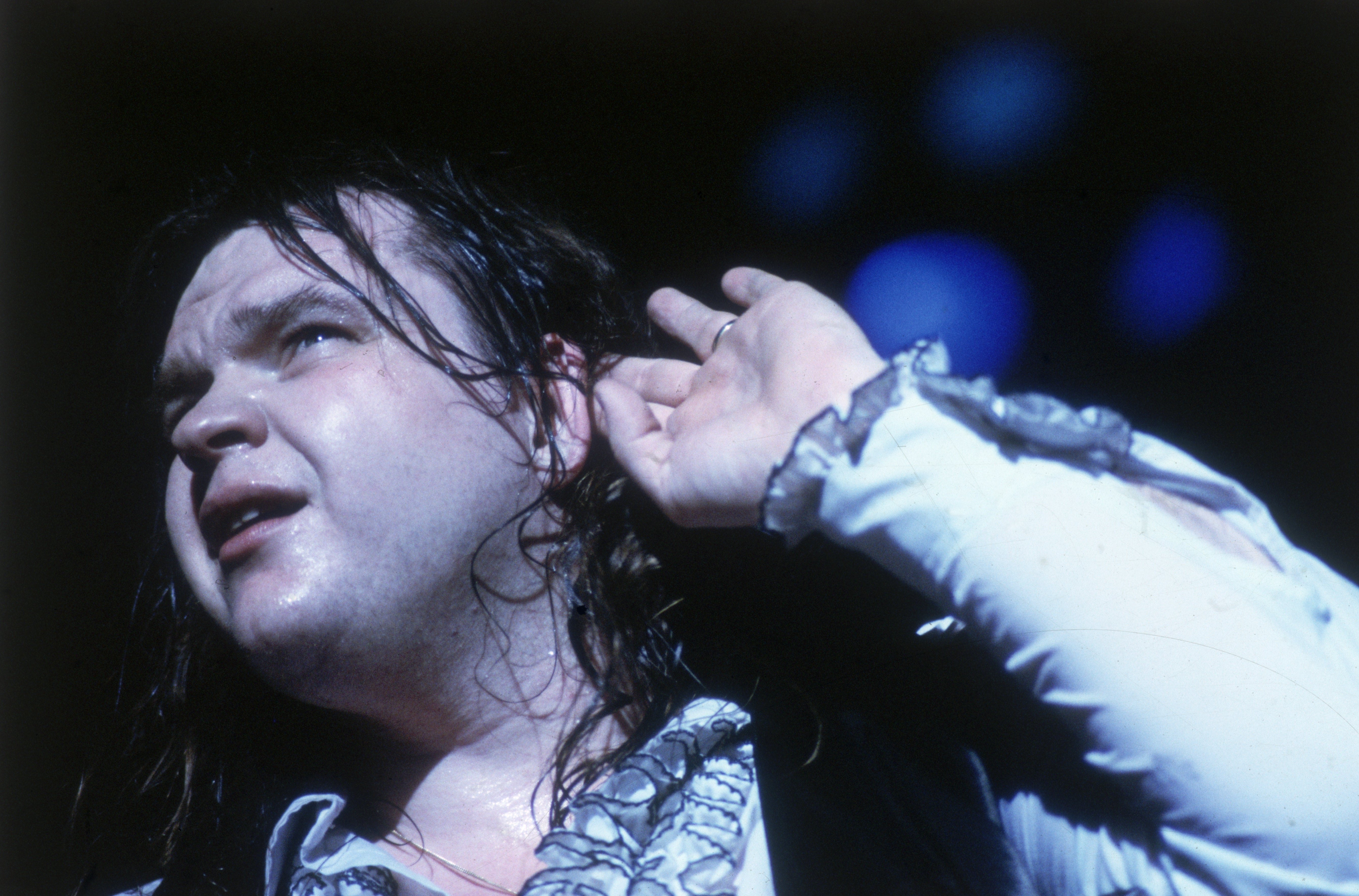
Meat Loaf, a singer whose soaring, near-operatic rock anthems made him one of the most unexpected pop stars of the 1970s and 1980s, and whose many acting roles included an integral part in the cult movie classic The Rocky Horror Picture Show, has died aged 74.
“We know how much he meant to so many of you and we truly appreciate all of the love and support as we move through this time of grief in losing such an inspiring artist and beautiful man,” the statement added. “From his heart to your souls... don’t ever stop rocking!”
Meat Loaf had collapsed onstage several times, including once in 2003 and again in 2016, when he stopped a performance in Edmonton, Alberta, from what was called dehydration. He resumed his tour after several days.
Meat Loaf, whose given name was Marvin Lee Aday, was an overweight character actor and second-rung rock singer before releasing his breakthrough album, Bat Out of Hell, in 1977. In singing the overwrought songs about teen angst and lust, Meat Loaf created the persona of an uncertain, love-struck man-child whose theatrical vocal style took him to the edge of self-parody.
His best-known songs could be described as rococo rock. There was “Paradise by the Dashboard Light,” “You Took the Words Right Out of My Mouth” and “Two Out of Three Ain’t Bad” – all from Bat Out of Hell – as well as his later Grammy-winning hit, “I’d Do Anything for Love (But I Won’t Do That).” All were written by Meat Loaf’s longtime musical collaborator and occasional antagonist Jim Steinman, but it was Meat Loaf who was the vehicle for the music, delivering energetic, emotionally earnest performances with an almost heroic sincerity.
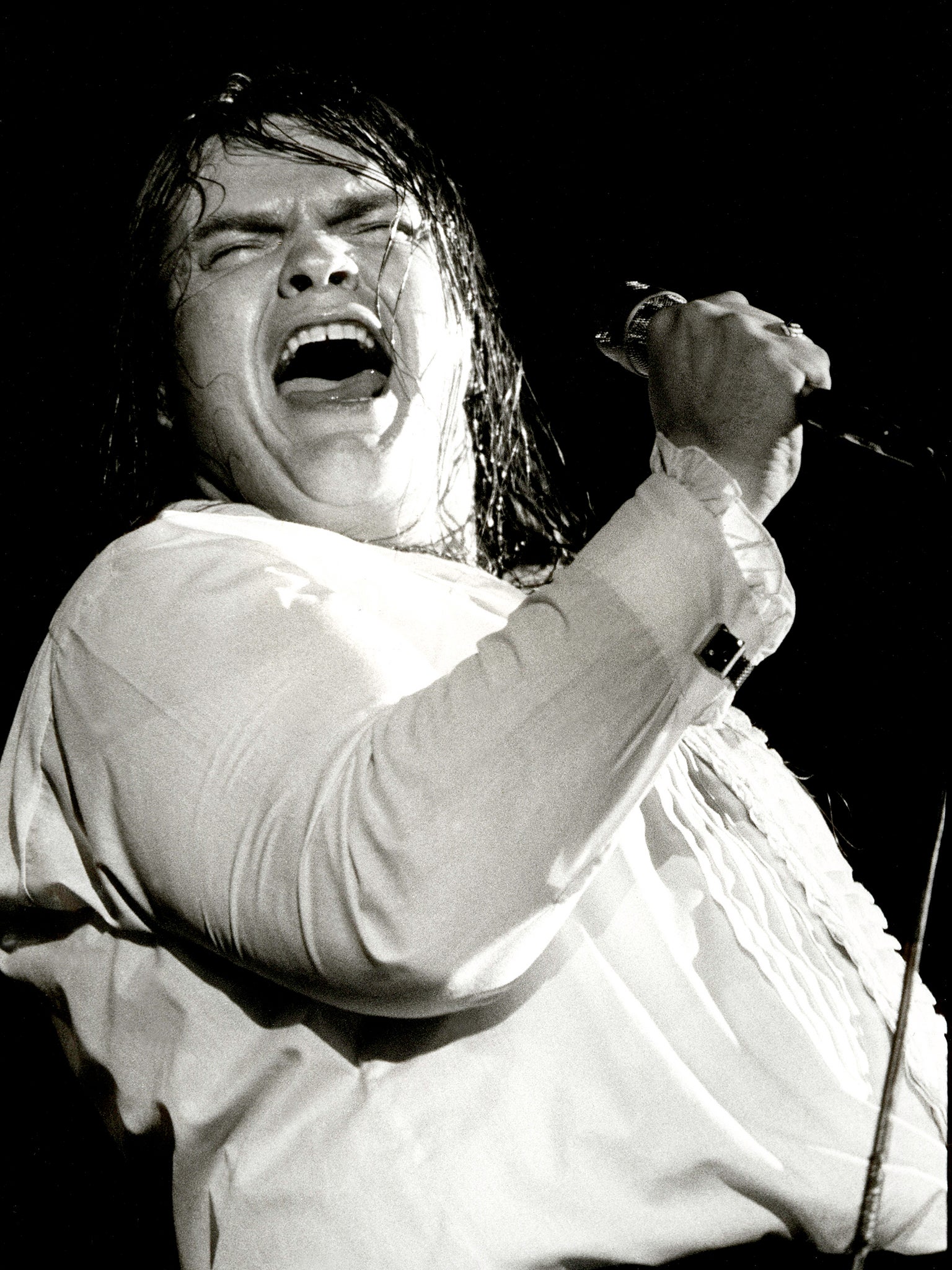
Bat Out of Hell was rejected by dozens of record companies before the album was finally released by Cleveland International, a small label associated with Epic Records. It received tepid, even hostile reviews at first.
But through relentless touring and a 1978 appearance on NBC’s Saturday Night Live, Meat Loaf found an audience, making Bat Out of Hell an enormous, if unexpected hit. It periodically returned to the pop charts for almost 40 years and sold an estimated 43 million copies worldwide, making it one of the top 10 best-selling albums of all time.
Its signature tune, “Paradise by the Dashboard Light,” which Meat Loaf performed with singer Ellen Foley, was an ornate melodrama about a teenage make-out session: “Though it’s cold and lonely in the deep dark night/ I can see paradise by the dashboard light.”
“Paradise” clocked in at more than eight minutes long and even contained a long segment narrated by Hall of Fame baseball player and broadcaster Phil Rizzuto, describing a batter rounding the bases and sliding into home. (Rizzuto said he didn’t realise his description was meant to be an elaborate sexual metaphor.)
His musical secret, Meat Loaf said, was that he approached every song like an actor preparing for a role.
“I can’t sing unless there’s a character,” he told The Observer in 2003. “Because I don’t sing. It’s almost like being schizophrenic – I don’t sing, the character sings.”
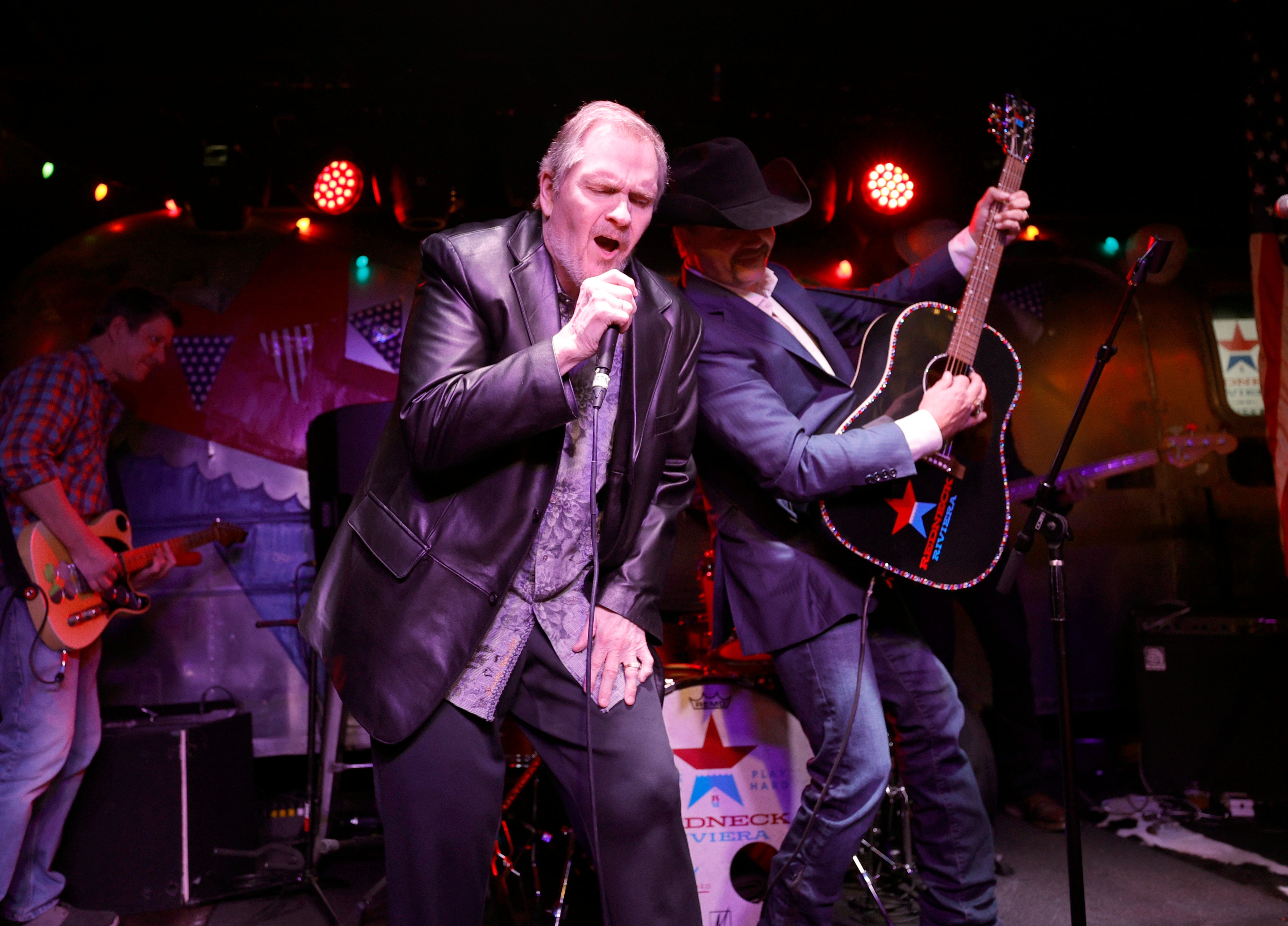
Early in his career, the long-haired, 300lb Meat Loaf was openly mocked by critics – and even by Steinman, who once called him “a grotesque, bloated creature, who stalked the stage like an animal but acted as if he were a prince”.
Meat Loaf perspired through his ruffled shirts and split the seams of his pants during his animated stage performances. During a concert in Ottawa in 1978, he fell off a stage and broke his leg. He continued the tour from a wheelchair.
“Meat Loaf was not the thin blond cliché of a rock star,” Steinman told The New York Times in 1996. “He looks like every kid who thinks he’s a misfit.”
Meat Loaf and Steinman met in 1974 while working in New York on a short-lived musical play called More Than You Deserve. Steinman was enthralled by Meat Loaf’s raw energy and emotion.

“He was an absolutely mesmerising, wonderful presence,” Steinman told The Washington Post in 1997. “His pupils would roll up into his head, and you’d see the whites of his eyes, and his hands would clutch. It was really powerful. He was extraordinary.”
Then, almost as soon as Meat Loaf reached a career apex, everything collapsed. His next few albums after Bat Out of Hell were critical and box-office failures, and he lost his record contract. He struggled with vocal problems, had legal trouble and, for several years, descended into a haze of alcohol and cocaine. By 1984, he had declared bankruptcy.
Meat Loaf and Steinman were not particularly close, except when they were making records, but they eventually realised how essential each of them was to the other’s success.
“I’ve always been described as the monster to his Dr Frankenstein,” Meat Loaf told The Washington Post. “If that’s what they want to think, I’m for it.”
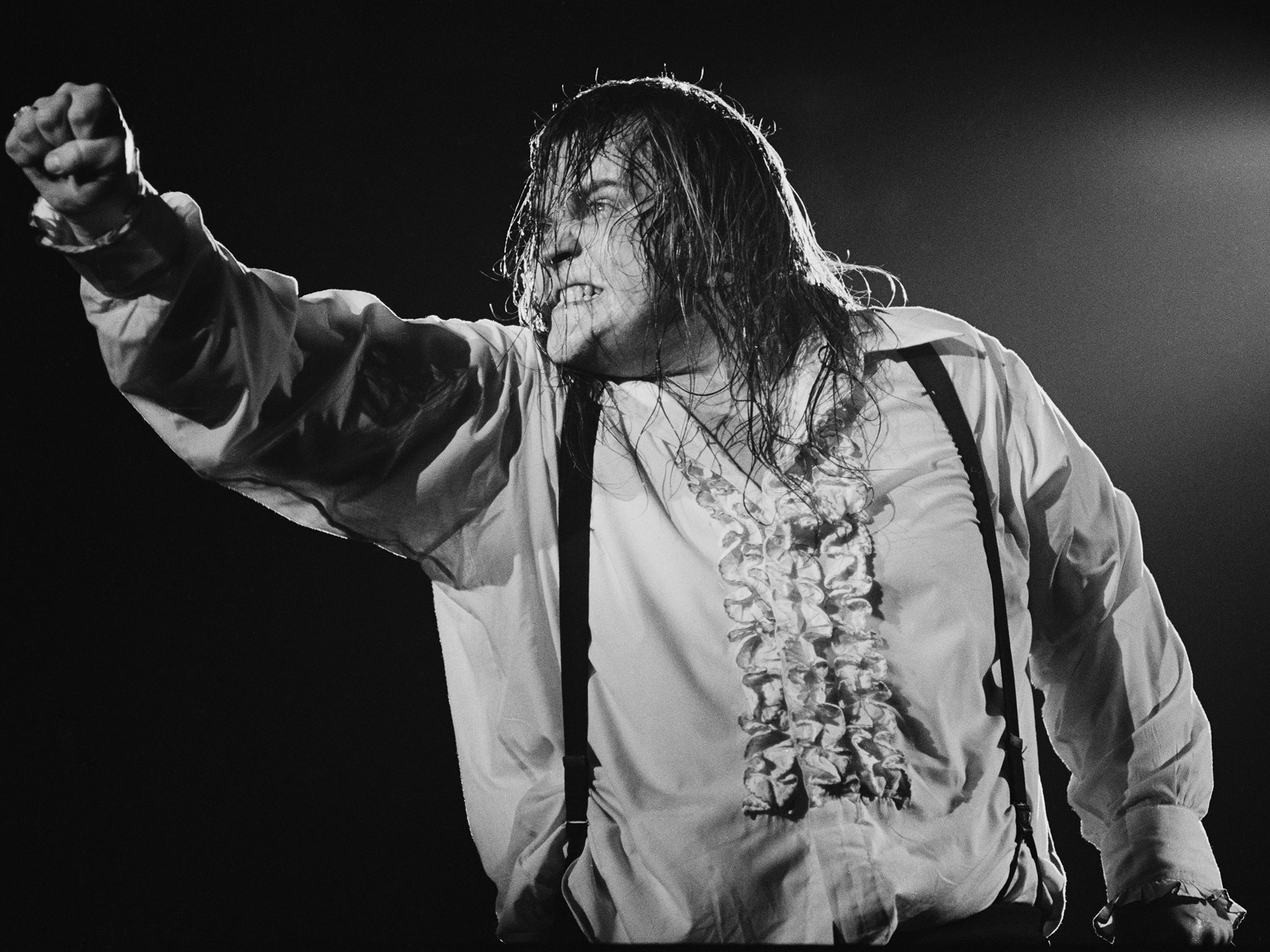
Steinman wrote a few hit songs for other singers, including “Total Eclipse of the Heart” for Bonnie Tyler and “It’s All Coming Back to Me Now” for Celine Dion, but his efforts as a solo artist fell flat. Meat Loaf’s albums without Steinman were similarly forgettable.
With his supple tenor voice back in top form, Meat Loaf released Bat Out of Hell II: Back Into Hell in 1993, featuring 11 new bombastic tunes by Steinman. “Bat 2” rose to the top of the charts and became the year’s top-selling album.
The epic-length hit “I’d Do Anything for Love (But I Won’t Do That)” became a No 1 single and earned Meat Loaf a Grammy Award for best rock vocal performance.
(The song’s title led to considerable speculation about its meaning. On a VH1 programme, Meat Loaf used a blackboard and a pointer to explain how the intricate lyrics were romantic, even innocent. One of the things he wouldn’t do, for instance, is “stop dreaming of you every night of my life”.)
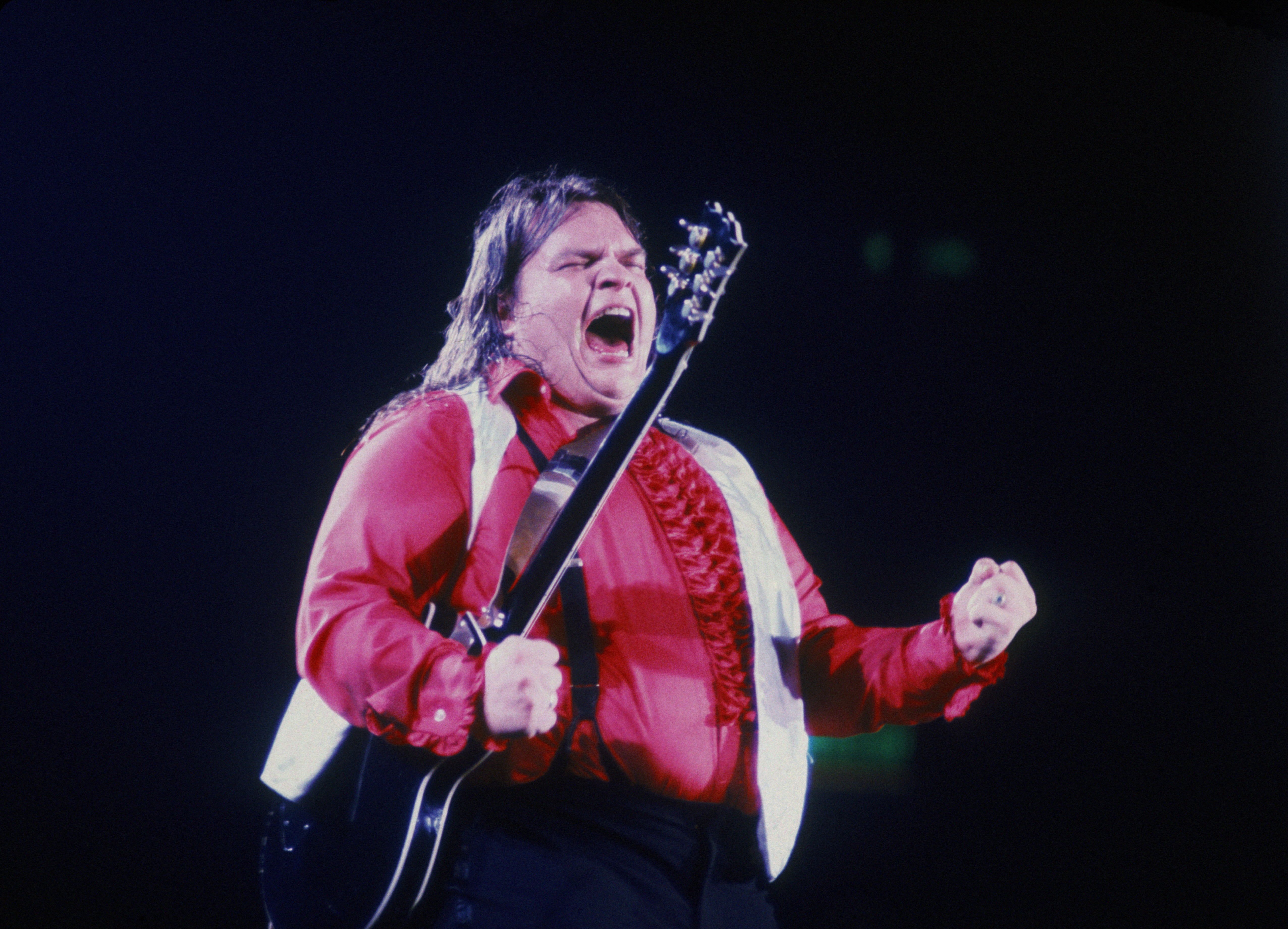
Seventeen years after the original Bat Out of Hell, the 46-year-old Meat Loaf had pulled off one of the most remarkable, and unlikely, comebacks in rock history.
“Everything on the album is overstated,” Stephen Thomas Erlewine wrote for the All Music Guide website. “Yet that’s precisely the point of this album, and is also why it works so well. No other rock & roller besides Meat Loaf could pull off the humor and theatricality of Back Into Hell and make it seem real.”
Marvin Lee Aday was born on 27 September 1947, in Dallas. He was always evasive about his age, sometimes claiming to be four years younger.
Meat Loaf gave many accounts of how he acquired his nickname, but the most likely version is that it derived from his weight, which topped 200lb (91kg) in the eighth grade (aged 14). He also said he was emotionally scarred during his youth by a commercial with the line, “Poor fat Marvin can’t wear Levi’s.” He later legally changed his first name to Michael, and most people called him “Meat”.
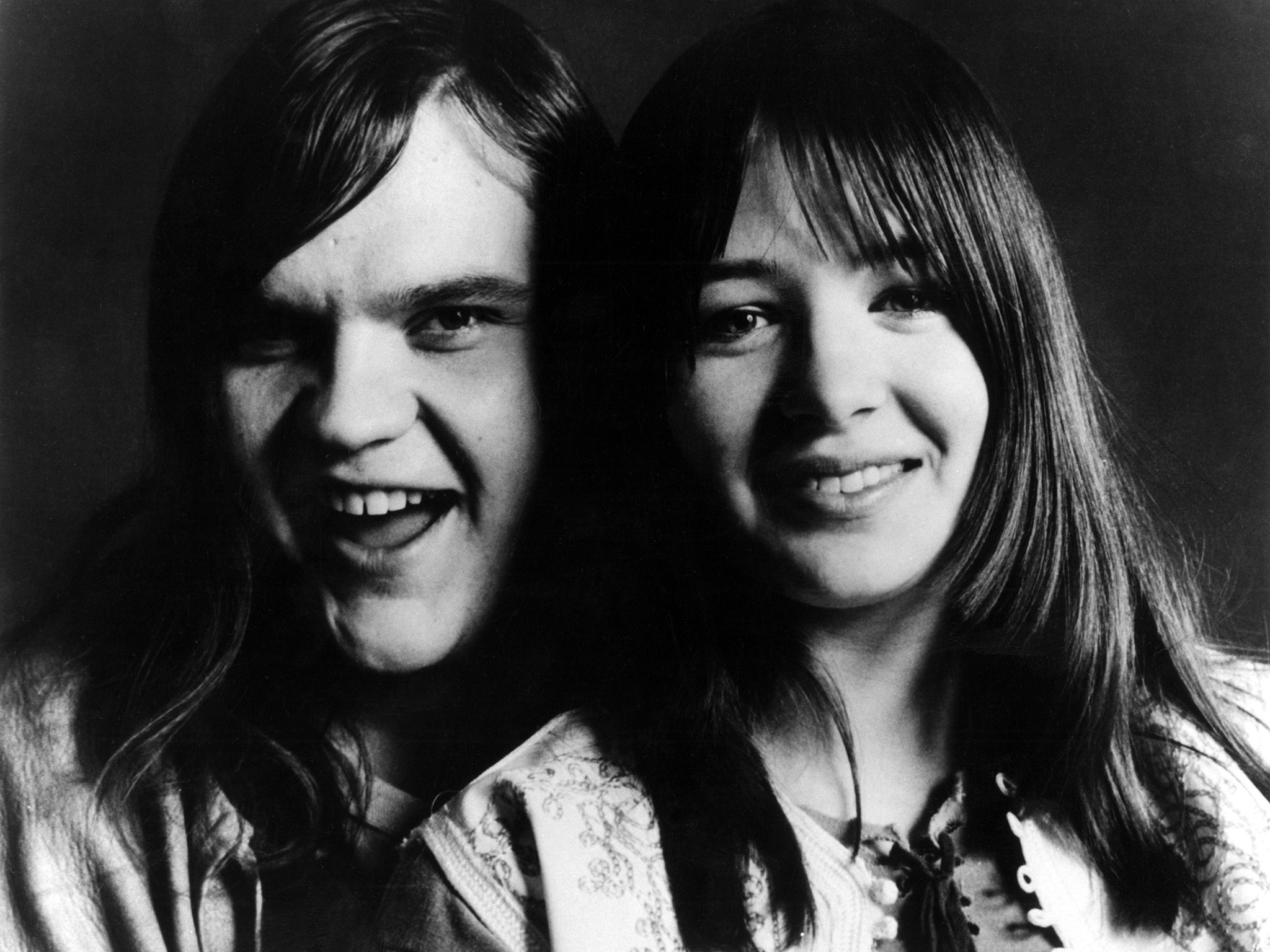
But the most difficult part of his childhood was his relationship with his father, a police officer turned salesman who was an alcoholic with a violent temper. One of their worst encounters came after the death of Meat Loaf’s mother in 1967.
“I went into my bedroom and my father came at me with a butcher knife,” Meat Loaf told Rolling Stone magazine. “It was like a movie. I rolled off the bed, and the butcher knife hit dead in the centre of the bed.”
He moved to Los Angeles, where he began to sing in local rock bands, including Popcorn Blizzard and Meat Loaf Soul, which sometimes opened for visiting acts such as The Who, Iggy Pop and Johnny and Edgar Winter. Meat Loaf won an audition for a part in a Los Angeles production of the then radical musical Hair – in which the cast stripped bare. He later appeared in the Broadway version of the show.
In 1974, Meat Loaf was in the Los Angeles cast of the first US performances of The Rocky Horror Show, a campy musical spoof of science fiction and horror movies written by Richard O’Brien and starring Tim Curry as a gender-bending mad scientist, Dr Frank-N-Furter.

Meat Loaf had two parts in the musical and sometimes wore high heels and fishnet stockings in his portrayal of Eddie, a rock-and-roll singer returned from the dead. In 1975, he was in the original Broadway cast of Rocky Horror.
When a filmed version of the musical was made later that year – adding a word to make it The Rocky Horror Picture Show – Meat Loaf played Eddie as a leather-clad, motorcycle-riding menace. His erotically charged version of the song “Hot Patootie – Bless My Soul” proved to be a highlight of the film, which ran for years as a midnight-movie cult favourite.
Among his more than 70 film and television credits, Meat Loaf appeared in the 1992 comedy hit Wayne’s World, with Mike Myers and Dana Carvey, and the Antonio Banderas-directed film Crazy in Alabama (1999). He also played a cancer-stricken onetime steroid abuser in the 1999 film Fight Club, starring Brad Pitt and Edward Norton.
Throughout his career, Meat Loaf balanced music and acting, sometimes in unexpected settings. In 1995, he held his own in a duet with opera star Luciano Pavarotti at a charity benefit in Italy. The same year, he released the album Welcome to the Neighbourhood, which included the hit single “I’d Lie for You (And That’s the Truth)”.

After a legal dispute with Steinman over the Bat Out of Hell trademark, Meat Loaf released the final album in a trilogy, Bat Out of Hell III: The Monster Is Loose, in 2006. The only contributions from Steinman were songs written years earlier. The lavishly produced album reached No 8 in the United States and No 3 in Britain and led to a successful stage production, Meat Loaf: Bat on Broadway.
In 2011, Meat Loaf finished third in the Donald Trump-hosted NBC show The Celebrity Apprentice. In a wildly profane onscreen outburst that became an internet sensation, Meat Loaf accused actor Gary Busey of stealing supplies needed to complete a task for the show.
For years, while married to Leslie Edmonds, Meat Loaf led an ordinary suburban life in West Redding, Connecticut, where he coached a girls’ softball team. After a divorce, he moved to Los Angeles and later to Austin.
Survivors include a daughter, actress Amanda Aday; and a stepdaughter whom he adopted, rock singer Pearl Aday.
Even without widespread critical acclaim, Meat Loaf sold more than 80 million records and continued to tour well into his sixties. He also found steady work as a character actor, including a role in a 2013 horror movie called Stage Fright.
“It will be really good or really bad,” he told the Hartford Courant at the end of filming. “The movie has no in-between and that’s kind of my story. People either love me or they hate me and that’s fine. I’d rather be frozen or boiled as long as I’m not lukewarm.”
Marvin Lee Aday, musician and actor, born 27 September 1947, died 20 January 2022
© The Washington Post
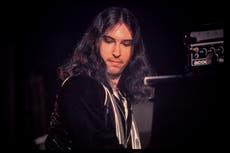

Bookmark popover
Removed from bookmarks